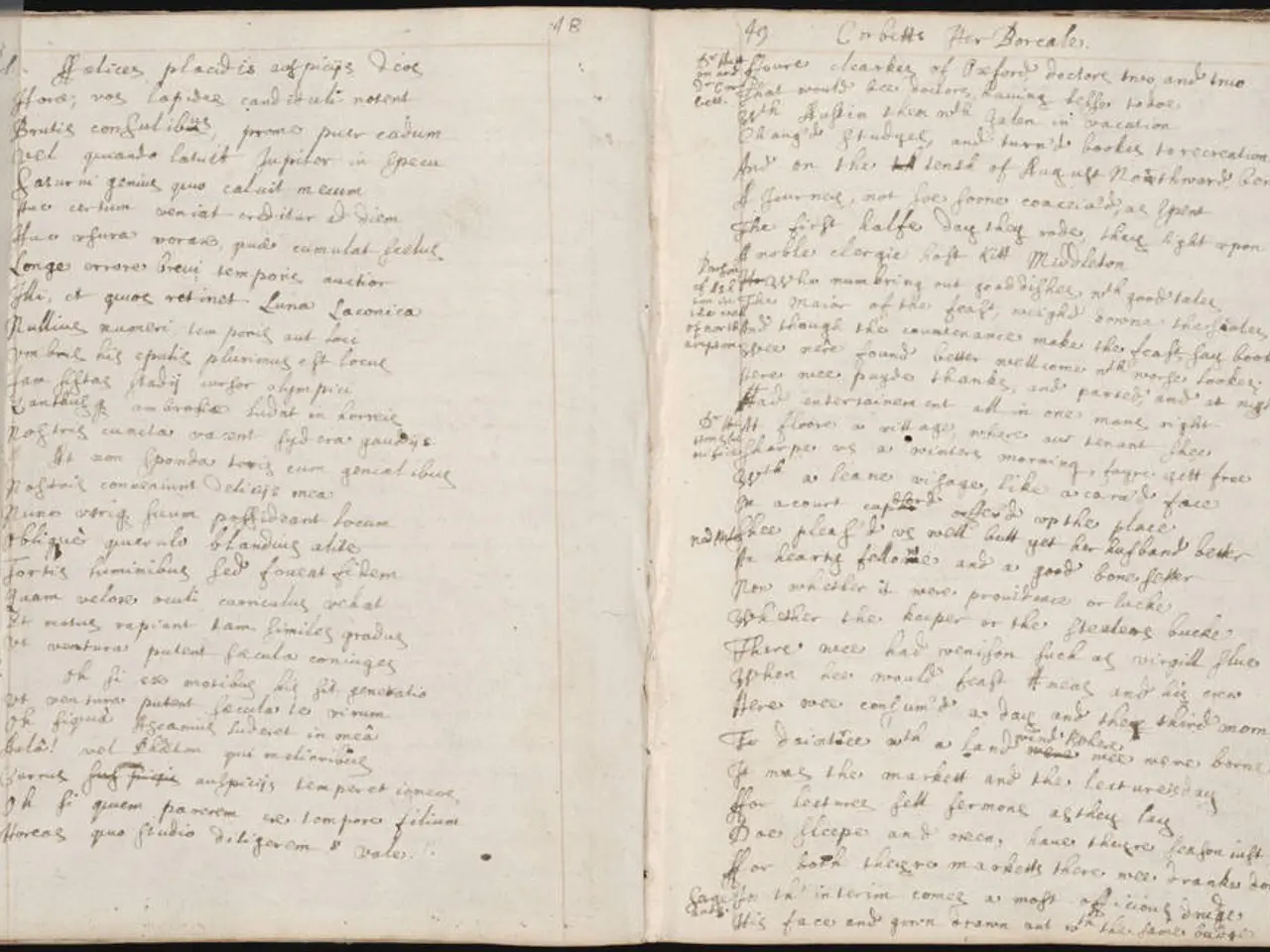Strategies for Crafting a Literary Analysis Essay: A 5-Step Guide
In the realm of academic writing, approaching any literary work with confidence is key. This is particularly true when it comes to writing a literary analysis essay, as the task involves more than just describing a work; it entails critically and meaningfully interacting with it.
A well-structured literary analysis essay, such as one on F. Scott Fitzgerald's 'The Great Gatsby', requires a thoughtful prewriting strategy. By segmenting the process into manageable steps, you'll be well on your way to producing essays that are interesting, perceptive, and academically solid.
Firstly, careful reading and note-taking are essential. Read the literary work multiple times, focusing on your initial impressions and emotional responses during the first read, without overanalyzing. For the second or subsequent readings, identify literary devices, symbolism, themes, character development, and key quotes. Take detailed notes on these aspects to use as evidence in your essay.
Reflecting critically on the text’s meanings and implications is the next step. Think deeply about the author’s message, the historical and cultural context, and the intended audience. Consider how the themes relate to broader issues or to your own experiences.
Brainstorming and idea generation follow. Use brainstorming techniques to generate a wide range of ideas and interpretations without censoring yourself. Write down every idea related to the themes, characters, symbols, or literary techniques you noticed. Talking through your ideas with others can also help clarify your thoughts and reveal different perspectives.
Conducting targeted research on the author, historical background, literary criticism, or critical theories relevant to your text is the fourth step. Take notes on this research to support or challenge your interpretations and to add depth to your essay.
Based on your reading and brainstorming, formulate a clear thesis that presents your main argument or interpretation of the literary work. This thesis should guide what evidence you choose and how you organize your essay.
Organize your notes and ideas into a logical structure. Outline your essay with an introduction (including your thesis), body paragraphs (each focusing on a particular point supported with textual evidence), and a conclusion (restating the thesis and its broader significance). This detailed plan ensures you stay focused and cover all critical points thoroughly.
When incorporating quotes from the text, make sure they are relevant and succinct. Proofread your essay for grammar, spelling, punctuation, and formatting errors. A helpful strategy is to read your essay aloud to catch awkward phrasing, unclear transitions, or repetitive language.
In conclusion, Fitzgerald's use of symbolism in 'The Great Gatsby' reveals the inherent contradictions of the American Dream and the tragedy of striving for an unattainable ideal. By following these guidelines, you'll be well on your way to producing essays that are interesting, perceptive, and academically solid.
- The process of writing a literary analysis essay, such as on F. Scott Fitzgerald's 'The Great Gatsby', involves more than just describing the work; it requires critical and meaningful engagement with the themes, characters, symbols, and literary devices present in the literature.
- To produce a well-structured literary analysis essay, it is essential to segment the process into manageable steps, such as careful reading and note-taking, reflecting critically on the text’s meanings and implications, brainstorming and idea generation, conducting targeted research, formulating a clear thesis, organizing notes and ideas into a logical structure, and ensuring the incorporation of relevant and succinct quotes.
- By following these steps, students can develop critical thinking skills, enhance their education-and-self-development through literature, and produce essays that are academically solid, interesting, and perceptive.
- Learning how to approach a literary work with confidence and critically engage with its themes, characters, and symbols is not only beneficial for academic success but also valuable for personal growth and understanding of the world.




